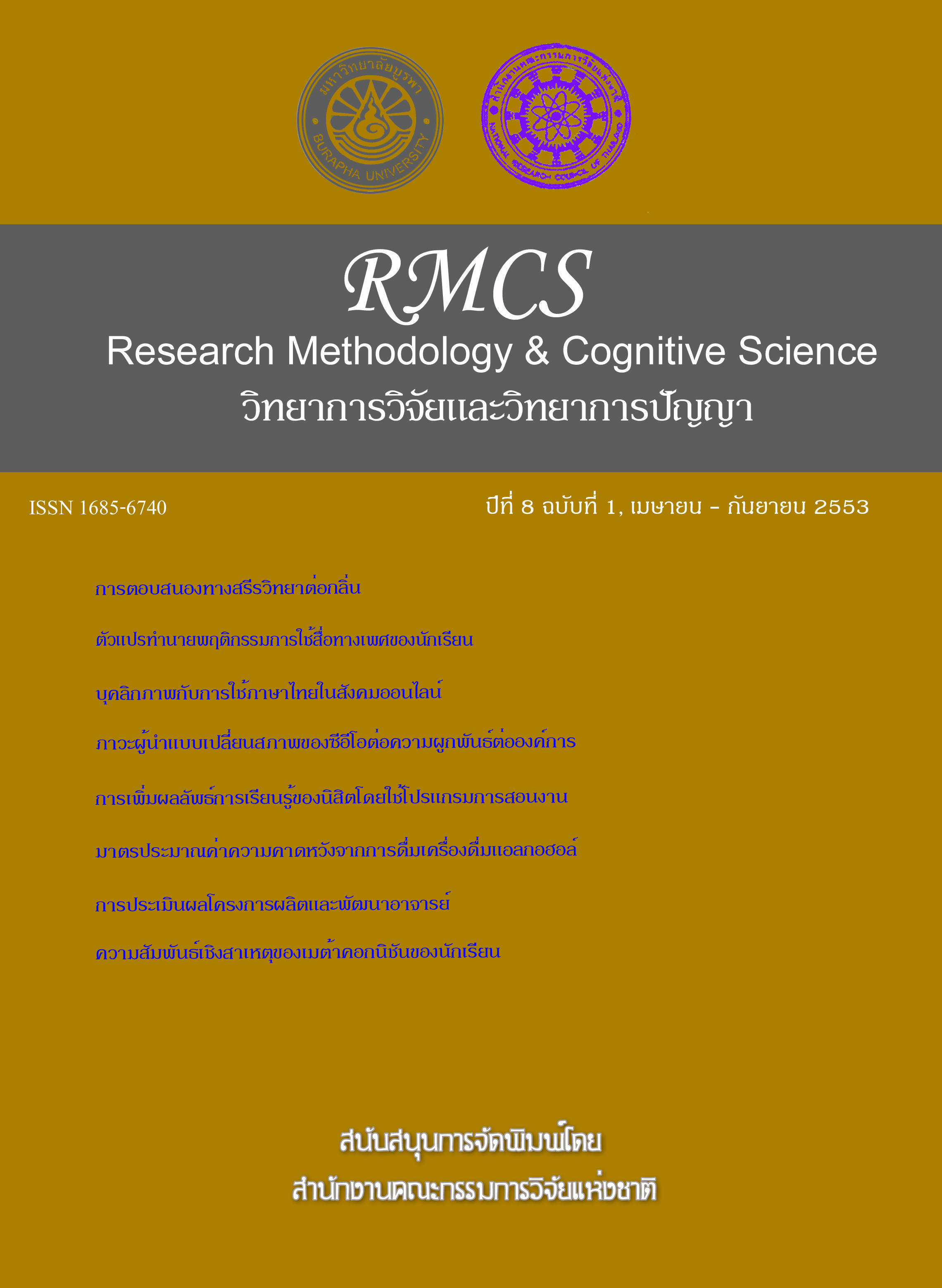การพัฒนาโมเดลความสัมพันธ์เชิงสาเหตุของเมต้าคอกนิชันของนักเรียนชั้นมัธยมศึกษาตอนปลาย
Main Article Content
Abstract
Development of A Causal Relationship Model of Metacongnition for Upper Secondary School Students
The purpose of this research was to develop a causal relationship model of metacognition for upper secondary school students and validate the model with empirical data. The model consisted of four latent variables: metacognition, critical thinking, information recall, and negative emotion. The sample derived by means of multistage random sampling, consisted of 438 students of Princess Chulabhorn’s Colleges, under the jurisdiction of the Office of Basic Education Commission, in the academic year 2010. Research instruments included a Recall Questionnaire, Health-Related Self Report: HRSR, Critical Thinking Questionnaire, and Metacognition Questionnaire. Descriptive statistics were generated using SPSS; causal modeling involved in the use of LISREL 8.80 Student Edition.
Results indicated that the causal model was consistent with the empirical data. Goodness of fit statistics were: chi-square test = 38.80, df = 39, p = .48, GFI = .99, AGFI = .97, CFI = 1.00 Standardized RMR = .02, RMSEA = .00. The variables in the model accounted for 80 percent of the total variance of metacognition.

